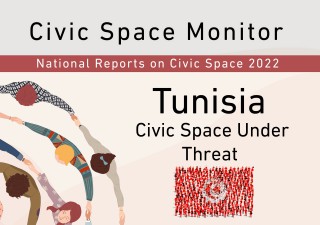
Tunisia is witnessing a deep structural crisis that has wreaked havoc on all fields and institutions, including the civic space which has been severely afflicted. Over the last ten years, instability has reigned in the country, amidst a low growth rate and increasing social, political, and economic issues. The situation, however, has worsened since President Kais Saied assumed full power on July 25, 2021, when he dissolved the Parliament, abolished the constitution and declared a state of emergency, which aggravated the crisis with repercussions across sectors. For the first time since the revolution, the civic space is facing serious threats. This led relevant actors to prepare for another round of battles on different frontlines, in order to maintain the wins from the struggle and huge sacrifices they have made. While civic society remained somehow active in different vital sectors, such as women syndicates and associations, human rights movement, and student activities, the key event that interrupted such activities throughout the period covered by this report is the challenge faced by all parties: the change in power and the targeting of the entire civil and political ecosystem.


